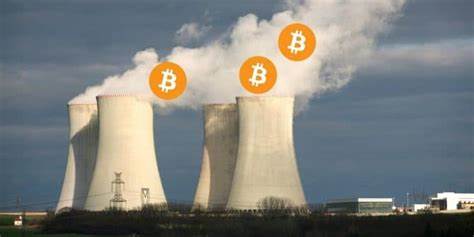Digital Zeitgeist – Bitcoin Mining And The Environment – Examining the Impact On The Climate Crisis
Bitcoin has been a controversial topic since its inception, with debates raging over its legitimacy and long-term viability. However, one issue that has recently come to the forefront is the environmental impact of Bitcoin mining. As the world grapples with the climate crisis, the energy-intensive process of mining Bitcoin has become a cause for concern.
Bitcoin mining is the process by which new Bitcoins are generated and transactions are verified. This process requires an enormous amount of energy, as powerful computers solve complex mathematical problems to verify transactions and secure the network. As a result, the environmental impact of Bitcoin mining has become a hotly debated topic.
The Environmental Impact of Bitcoin Mining
According to recent studies, Bitcoin mining currently accounts for approximately 0.5% of global electricity consumption. This figure is expected to continue to rise as the popularity of Bitcoin grows, potentially reaching 5% of global electricity consumption by 2025. This massive energy consumption has significant environmental implications, as the majority of the world’s electricity is still generated from fossil fuels.
In addition to the energy consumption required for Bitcoin mining, there is also the issue of electronic waste. The powerful computers used in Bitcoin mining have a relatively short lifespan and must be replaced frequently, leading to a significant amount of electronic waste.
The Climate Crisis and Bitcoin Mining
The impact of Bitcoin mining on the environment is not only a concern for environmentalists but also for those working to combat the climate crisis. The Intergovernmental Panel on Climate Change (IPCC) has warned that the world must drastically reduce its carbon emissions to avoid catastrophic climate change.
Bitcoin mining is a significant contributor to global carbon emissions, as the majority of the world’s electricity is still generated from fossil fuels. According to a recent study, Bitcoin mining produces approximately 22.9 megatons of CO2 emissions each year, equivalent to the emissions produced by countries such as Jordan and Sri Lanka.
The Future of Bitcoin Mining
Despite the environmental concerns surrounding Bitcoin mining, the industry continues to grow at a rapid pace. This growth has led some to call for increased regulation and oversight of the industry to address the environmental impact of Bitcoin mining.
In recent years, there have been efforts to develop more energy-efficient mining methods, such as using renewable energy sources like solar or wind power. However, these methods are still in the early stages of development and have yet to be widely adopted by the industry.
Some companies have also taken steps to address the environmental impact of their mining operations. For example, Square, a digital payments company that operates a Bitcoin mining business, recently announced plans to become carbon neutral by 2030. Other companies have committed to using renewable energy sources to power their mining operations.
The Role of Governments and Consumers
Ultimately, the impact of Bitcoin mining on the environment will depend on the actions of governments and consumers. Governments can play a significant role in regulating the industry and promoting the use of renewable energy sources. Consumers can also have an impact by choosing to support companies that prioritize environmental sustainability.
In recent years, there has been growing awareness of the environmental impact of Bitcoin mining among consumers and investors. This awareness has led some to call for increased transparency and accountability from companies operating in the industry.
Conclusion
The environmental impact of Bitcoin mining is a complex issue that requires a multifaceted solution. While the industry continues to grow, it is important for companies to take responsibility for their impact on the environment and work to reduce their carbon emissions. At the same time, governments and consumers must also take action to promote environmental sustainability and reduce the industry’s impact on the climate crisis.
online sources: theguardian.com, thisismoney.co.uk

